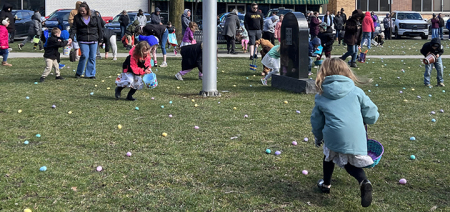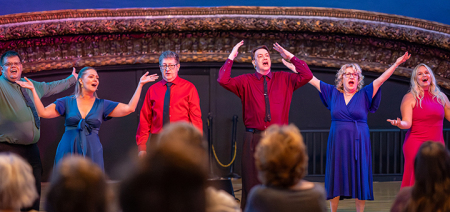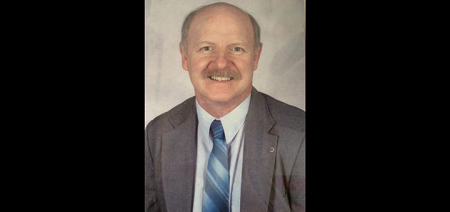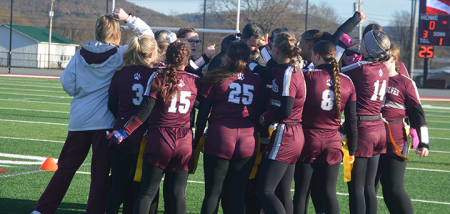Chenango Health Network Offering Free Mental Health First Aid Training
Published:
March 29th, 2023
By:
Sarah Genter

CHENANGO COUNTY — Chenango Health Network is offering a free community Mental Health First Aid training and certification course to anyone over the age of 18.
The class will be held via Zoom and includes two three-and-a-half hour sessions from 3:30 to 7 p.m. on Tuesday, April 11 and Tuesday, April 18. Additionally, participants will be asked to complete approximately two hours of self-paced pre-course work within 48 hours prior to the start of the course.
Participants must complete pre-course work and attend both training sessions, as well as complete a short, multiple-choice final exam to receive their Mental Health First Aid certification.
"They learn how to be a safe, non-judgmental space and to look for signs and symptoms in others of having a mental health or substance use challenge," explained Chenango Health Network Mental Health first Aid Training Coordinator Tiffani Gager. "They learn how to safely assess the situation and approach that person with a calm, even-keeled demeanor, and just again be that shining light for somebody that may need that extra kindness and support."
To register, contact Gager at 607-337-4233 or tiffani@chenangohealth.org.
Gager describes mental health first aid training as similar to first aid training, except it’s triage for the mind instead of the body.
"When you do first aid, the purpose is to help them before they go to the hospital to make sure they're okay," she said. "Of course, not everybody is going to see a therapist, but it’s the triage of being that safe space again.
"I can’t stress that enough, that non-judgmental, empathetic safe space that people can feel comfortable being vulnerable in, and then offering up those supports, whatever that looks like. Whether it’s going to a therapist, going to a peer support recovery person, or going to a doctor. And offering up those supports and giving them that power to follow through."
During the training, participants will also learn about professional supports and services available to those with mental health or substance use challenges, and how to connect others with those resources.
"Not only has the crisis hotline’s and suicide hotline’s numbers changed to 988 from what they were before, but to keep them updated on what locally might be able to support them," said Gager. "Because sometimes it’s really hard to keep up, and so we offer updated supports and resources that we give to our participants who take the class."
When asked who should take the Mental Health First Aid training course, Gager said "everyone." She explained the course is extremely versatile, and the knowledge gained can be used to help friends, family members, and colleagues, or even to help a stranger experiencing a mental health challenge in a grocery store.
"It’s such a versatile course. That’s the one thing that’s fabulous. Once you have this tool, this certification, and you can be out in public and if you see someone experiencing a challenge you can say ... ‘I’m a certified mental health first aider, if there’s anything I can do to help you I want you to know I’m here,'" Gager explained. "You could be in WalMart and see someone experiencing a challenge, and if you feel safe to do so – 'challenge by choice,' you assess the situation – and if you can approach safely, you can use it anywhere."
Gager said a big emphasis is placed on self-care throughout the training as well, as the course covers heavy topics such as self harm and suicide.
Plus, providing mental health support to others can cause individuals to experience "vicarious trauma," meaning they take on the emotions and trauma of another person. This makes self care even more crucial, said Gager.
"I always let people know that what we're going to talk about can be really, really heavy, and we’re going to be using some language that can spark some really big emotion. So if at anytime you need that extra support, we are here for you, and we will happily talk with you anytime you need it and support you in any way we can," she said.
"That’s why every curriculum ends, the last segment is about self care. Hey, we’ve been through so much right now, what can you do for you to process what we’ve learned so you can feel really good leaving here knowing that you're taking care of yourself while learning how to help others."
What's more, Gager said those who have completed the course have even been able to apply what they've learned to themselves, and recognize when they're in need of support.
"We've heard feedback going, 'I know I was struggling, but I didn’t know I was struggling that bad and that I needed to take care of me.' It brings a lot of things to light. It almost makes you stop and force people to look at themselves and go, are you taking care of yourself?" said Gager. "It does bring that self awareness when one bad day turns into a bad six weeks. So it brings up that self awareness of okay, I’m assessing myself, I need some supports too. Alright, now I have a list of supports, what does that look like for me? What do I feel I would benefit from?"
Mental Health First Aid training courses are offered to the community once a month, either fully in person, via Zoom, or a combination of the two. Chenango Health Network also provides free Mental Health First Aid training courses to businesses and agencies who would like to train their staff.
For more information on Mental Health First Aid training and Chenango Health Network, visit ChenangoHealth.org or the Chenango Health Network Facebook page.
Author: Sarah Genter - More From This Author
Comments








